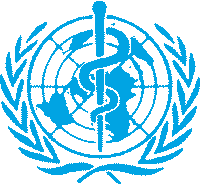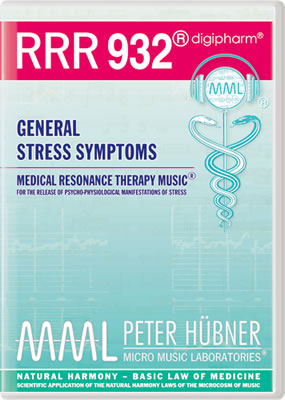Stress-Reducing Effects of the
Medical Resonance Therapy Music®
The Academy of Sciences
in cooperation with the
United Nations
World Health Organization
(WHO)
International conference on
SOCIETY, STRESS and HEALTH
Moscow,
The Academy of Sciences, Anokhin Institute of Normal Physiology
Presentation: Prof. Dr. med. G. Gerassimowitsch /
Prof. Dr. med. W. Sidorenko, Medical University, Minsk
SUMMARY
Compared to conventional treatment
with drugs, Medical Resonance Therapy Music® has proven
itself to be four times more effective in respect of the
reduction of the physiological manifestations
of stress in female patients who undergo gynecological
surgery. Due to its superior effectiveness, Medical
Resonance Therapy Music® also reduced the length of hospital
stay by 20-25%. Furthermore, it also has proven itself eight
times as effective as conventional treatment in respect
of the improvement in the psychological status and
has led to the restoration of normal mental functions
in patients who had exhibited a disturbed mental profile.
Key words: Medical Resonance
Therapy Music, pre-operative stress, post-operative
stress, stress-reducing therapy, cortisol, length
of hospital stay, sedatives, hypnotics, psychological
status
High stress levels in post-operative patients are associated
with a mass of negative health and socio-economic consequences.
This applies particularly to the extent of the pre- and
post-operative stress in women who undergo gynecological
surgery.
Stress-related problems are commonly treated with numerous
medications, including tranquillizers,
hypnotics and analgesics. These can, however,
have undesired side-effects and, in some cases, lead to long-lasting
dependency problems.
It was already recognized a considerable time
ago that music can reduce stress and pain and improve the mood.
It has now been shown that here the Medical Resonance Therapy
Music® by the classical composer and musicologist
Peter Hübner offers unique advantages – a recognition
which is supported by the extensive experience gained
in various set-ups for experiments commissioned in
the last 5 years including, amongst others, studies in Minsk,
Belarus.
The Medical Resonance Therapy Music® method is based on nature
orientated and holistic principles, first described
by the Greek scholar Pythagoras. The effect of these principles
has now been enhanced through the application of highly
developed technology which makes use of the latest
advances in computer technology for musical synthesis.
During the past years, Medical Resonance Therapy Music®
has been successfully used as the main method of stress-reduction before and after operations for many different
disorders and under various clinical conditions.
In order to obtain objective substantiation
for the numerous concurring reports about the subjectively
experienced beneficial effects of Medical Resonance
Therapy Music, scientific studies were ultimately
carried out. These studies were also intended to find out ways
in which, through a better understanding of the active
mechanisms involved in the physiology, one might increase
the effectiveness of the method still further.
In the study presented, Medical Resonance Therapy Music®
was used for women before and after a gynecological
operation, and compared with a control group which received
conventional treatment with drugs. The cortisol level was determined on the day of admission, on the day of the
operation and 10-12 days after the operation.
A significant degree of superiority of Medical
Resonance Therapy Music® over the medication could
also be observed in the post-operative phase, where the cortisol
levels in the control group were lowered by a factor of
1.7, compared with a factor of 2.4 in the Medical Resonance
Therapy Music® Group.
The female patients were also evaluated in respect of their emotional
status, for which purpose the Minnesota Multiphasic
Personality Index (MMPI) was applied. This showed considerable
individual differences, which ranged from normal
up to severe psycho-pathological levels. In some cases the
level of individual profile peaks was as high as 90 t-points.
In the Medical Resonance Therapy Music® Group, the psychological
status improved in 88.9% of the patients, compared to a mere
10% improvement in the control group. The psychological
status deteriorated in 11.1% of the patients in the Music
Therapy group and in 20% of the control group. After cessation
of the treatment with Medical Resonance Therapy Music®,
the MMPI level never went above 50-55 t-points, indicating a
normalization of the psychological status. There
were also fewer complications arising in the Music
Therapy group, and the length of stay in hospital for this group
was shortened by 2-3 days.
In respect of the stress-reducing effects of the Medical
Resonance Therapy Music® by the classical composer
and musicologist Peter Hübner, our experiences in
Belarus thus substantiate the reports of other colleagues.
This is particularly true in the case of patients undergoing
surgery, and here the method offers various medical and
socio-economic advantages.
These include an excellent release
of stress-related symptoms, an improved psychological
status, avoidance of costs, side-effects and long-term damage
associated with medicinal therapy, as well as
a significantly reduced stay in hospital. We believe
that the unusual cost-effectiveness of this new method of
therapy opens up significant possibilities, particularly
where finances tend to be limited.


